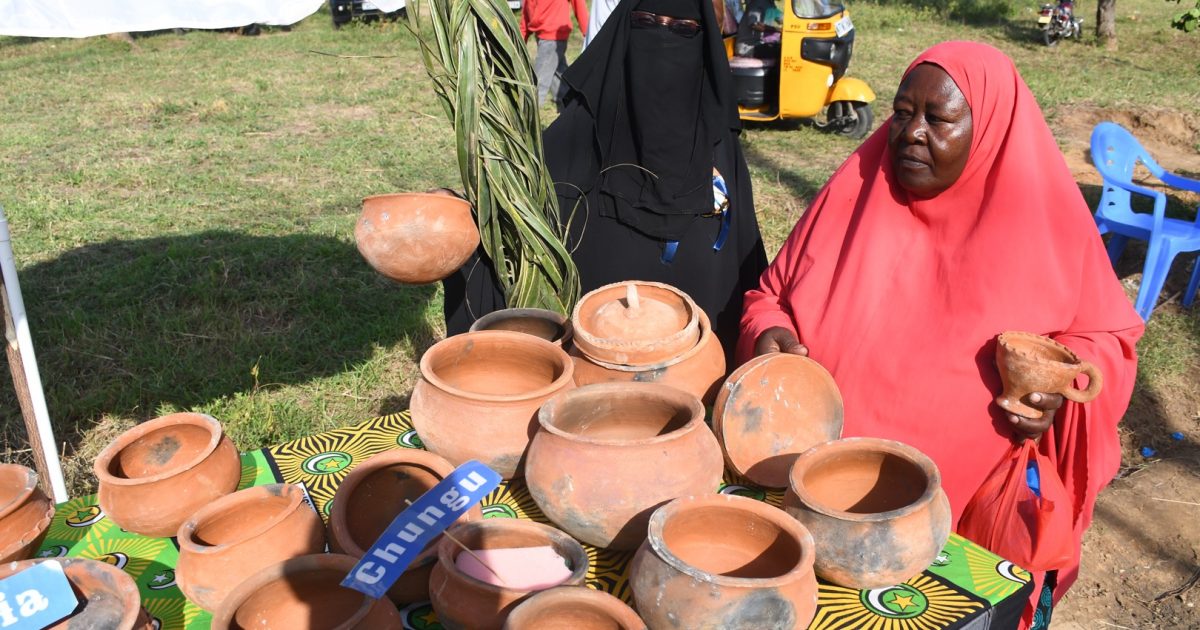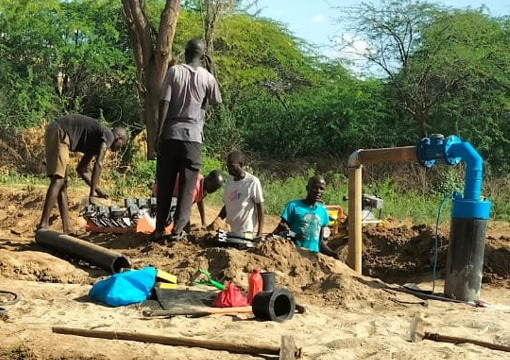The Jomvu community women want the government to look for a market for their pots made from clay sand.
The Wajomvu community is a sub-tribe of the Swahili tribe; they are predominantly found along the coastline in Jomvu Kuu in Jomvu Constituency and Maunguja in Kisauni Constituency.
The women are famously known for moulding pots using clay, sand, and incense sticks; the craft is passed from one generation to the other. The pots are famous for their characteristics of slowly cooling food, being non-harmful to the user, and their durability.
“Our cultures have remained the same since our forefathers and foremothers; they are passed on from one generation to the next. Moulding pots is our main economic activity since we were growing up; we were not employed in the defunct County Councils or elsewhere,” said Time Mwinyi, Chairlady of the Jomvu Kuu Women Self-Help Group, during a cultural event in Jomvu Kuu.
Their parents, she added, taught them how to make and pass the craft onto their children in order that their culture is not lost ‘because this work made our moms and grandmothers educate us,” she said.
The main economic activity up to now for men is fishing, while women practice moulding and sell the wares in Mwembe Tayari market.
On her part, Halima Ali says the lack of modern equipment to be used in moulding is the big impediment.
She urges the government and non-governmental organisations to assist the women’s group in expanding their business.
Mwajuma Ramadhan, a member, underscored the importance of passing the craft on to the youths so that the community culture cannot be lost during modernization.
“The culture has been lost, but we have started to revive it. The new generation doesn’t know that our traditional foods, cooked in moulded pots, are delicious,” she said, adding that youth should develop interests in cultures.
Morris Odero, a founder of the Sir Morris Foundation, says they have sponsored more than 42 groups in Jomvu Sub-county with various projects.
“We have learned about Jomvu community culture; it is important for youths to know their cultures. Groups such as Jomvu Kuu, must be supported by all leaders for the preservation and monetization of cultures; if we don’t prioritise, cultures will be extinct,” said Odero.
Laila Karama, Director of Ama Water, says they will work closely with the women’s group through value addition of the pots and traditional foods and marketing through social media platforms.
By Sadik Hassan




